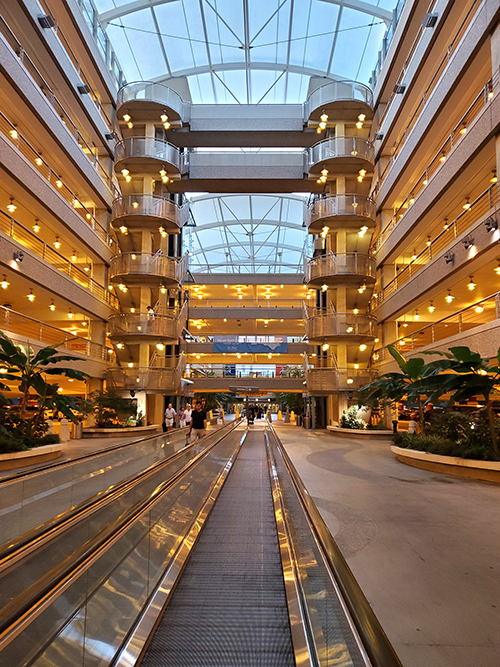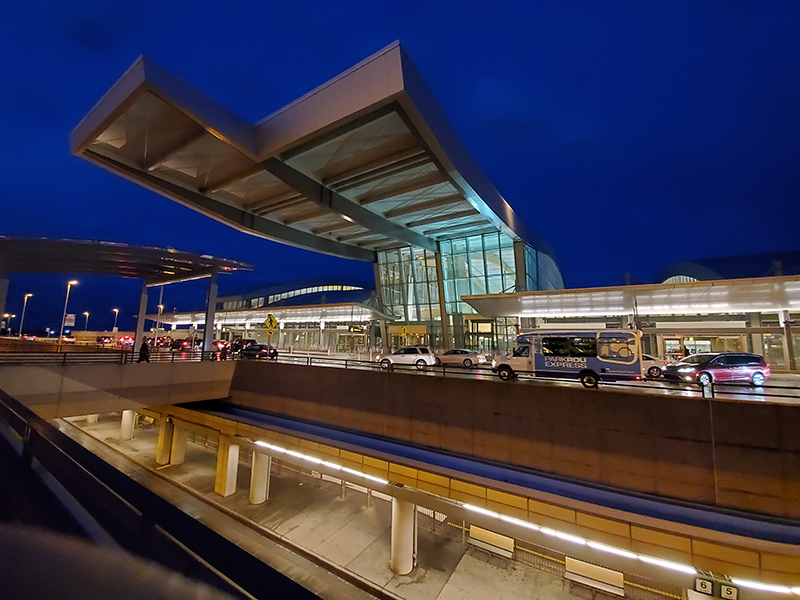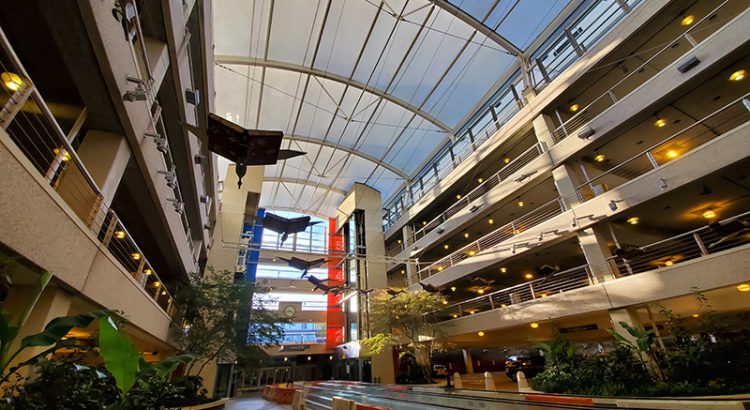By David Freedman
You might be surprised to learn that Raleigh-Durham International Airport (RDU), which is owned by four local governments, receives a total of $50,000 a year in local tax dollars, an amount that has not increased since 1957. RDU is largely self-sustaining, operating on revenue it earns from airline fees, food and beverage sales and parking. In 2019, parking accounted for the largest share of the airport’s total revenue, even though RDU’s rates are lower than those charged by other airports of similar size.

Photo by Kim Stevens
Dynamically adjusting parking fees helps RDU ensure there are enough spaces in the deck or remote lots while maintaining options for a wide range of travelers. Parking revenue supports RDU’s operating costs and is reinvested in improving parking facilities and roads, maintaining runways and funding other airport infrastructure projects. The airport has spent $13.5 million in recent years to resurface lots, replace elevators and moving walkways in the garage and explore technology that will continue to improve RDU’s parking experience.
Because RDU relies so heavily on parking revenue, it must balance cost and capacity with the traveler’s desire for ample and affordable choices. The airport proactively manages its parking offerings by continually reviewing rates, tracking the number of open spaces in parking facilities and offering promotions to ensure that a variety of locations, products and price ranges are always available.
Parking revenue dropped significantly with the onset of the pandemic in 2020 along with a dramatic downturn in passenger volume. In the early months of the pandemic, the number of travelers flying through RDU plummeted to three percent of 2019 levels. RDU consolidated all public parking options into the terminal deck, reduced parking rates and discontinued its shuttle bus service to help manage the airport’s limited resources.
The parking deck began to fill near capacity in the spring of 2021, reaching 81 percent capacity during Easter weekend. RDU’s forecast predicted slow yet continuous recovery throughout the summer and, as a result, the impending need to provide additional spaces. RDU responded by expanding its parking options, reopening a remote lot and resuming shuttle service. Parking rates were adjusted to match increasing demand levels while allowing guests to take advantage of previous rates by booking online.
Prior to the pandemic, the Authority installed technology that provides contactless access to RDU parking facilities and payment systems. Guests who book parking at least 24 hours in advance using RDU’s online booking system will get the lowest daily rate and can pass through the entrance gate with a QR code. Exiting is seamless with license plate recognition, which automatically opens the gate. There are credit card scanners at every entry and exit lane that allow guests to pay with mobile apps, as well as pay-on-foot kiosks located near both terminals that allow guests to pay with their smart phones and watches. RDU also recently eliminated cash payments at its parking facilities as part of the industry trend toward touchless technology.

Photo by Kim Stevens.
By late summer, RDU’s passenger traffic had recovered to about 70 percent of 2019 levels and the terminal deck was regularly nearing capacity. As more travelers return to flying, RDU’s parking department continues to monitor parking trends and evaluate all options for providing and maintaining ample parking options.
The pandemic highlighted the need for RDU to diversity its revenue streams, yet parking will likely remain one of the largest sources of non-aeronautical airport revenue. RDU serves one of the fastest growing markets in the country and must continue to grow responsibly to meet regional air service demand.
RDU is expected to begin construction on nearly $2 billion in infrastructure projects like expanded parking facilities, roadway reconstruction and a new runway by 2030. Dynamic parking rates, online promotions and the introduction of new technologies will help the airport generate revenue, manage parking capacity and provide guests with parking options that match their needs.
David Freedman is Senior Vice President and Chief Revenue Officer at RDU




